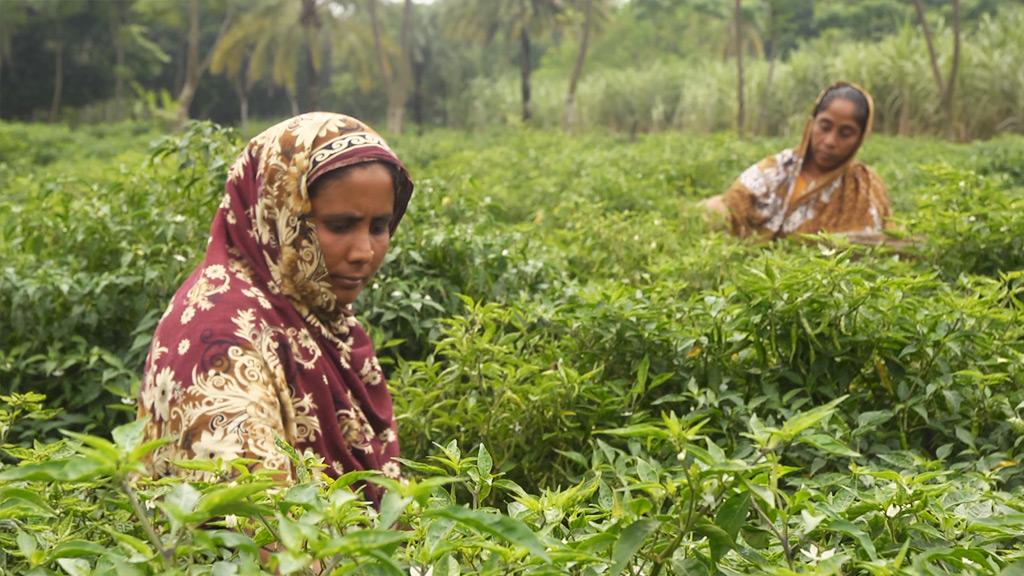News & Updates
A new project puts women at the forefront of climate resilience in Bangladesh
28 February 2018

The Green Climate Fund has approved a US$25 million grant to support Bangladesh’s efforts to build the adaptive capacities of vulnerable communities along the cost.
The initiative will focus on women and adolescent girls and is set to benefit 700,000 people over 6 years.
The project will be led by the Ministry of Women and Children’s Affairs who will also contribute $8 million in co-financing.
The project marks a paradigm shift in how women and girls are viewed as agents of change to plan, implement and manage climate-resilient solutions in one of the world’s least developed countries.
The United Nations Development Programme will support the programme by mobilising a coalition of partners.
It is estimated that 25,000 women and girls in Satkhira and Khulna will receive assistance and training in adopting resilient livelihoods. In addition, the programme aims to strengthen the participation of women in early warnings and continued monitoring and adaptation of livelihoods.
Similarly, the project will ensure reliable and safe drinking water for 130,000 people through the introduction of community managed rain-water harvesting solutions.
A key aspect of the project will focus on enhancing women’s access to markets and finance. Women will receive training in business development, women’s producer groups will be linked to businesses through networking activities and women will be supported in accessing credit from the financial sector.
Secretary, Economic Relations Division, Ministry of Finance, and National Designated Authority for Bangladesh to Green Climate Fund, Mr. Kazi Shofikul Azam, commented:
“The Government of Bangladesh is committed to tackling climate change in the context of its overall development framework and its goals under Agenda 2030 for Sustainable Development. This newly approved project contributes towards priorities outlined in Bangladesh’s Nationally Determined Contributions and climate change strategies, including its Climate Change Strategy and Action Plan and existing Climate Change Gender Action Plan”.
The project will see the Ministry of Women and Children’s Affairs integrating gender and climate change across sectors and the Department of Health Engineering scale up climate resilient solutions to ensure safe drinking water.
Bangladesh is widely acknowledged as one of the most vulnerable countries to climate change due to a range of factors including: its low lying coastlands, its location on the Ganges, its high level of poverty and its high population density.
Dr. Saleemul Huq, International Centre for Climate Change and Development (ICCAD) Director said,
“Bangladesh ranks among the world’s one of the most vulnerable countries when it comes to climate change. Women are disproportionately affected by the impacts. As household managers, women are primarily responsible for producing food for the family, as well as securing household water and energy. Limited control over resources and decision-making often puts extra burden on women. Through this initiative of Green Climate Fund and UNDP, the situation is expected to get better.”
The UNDP highlighted that the poor disproportionately bear the risks and impacts of climate change and often lack the means to adapt.
In recent years the contributions and needs of women in relation to climate change become increasingly recognised on the global agenda. Implementation of the project ‘Enhancing adaptive capacities of coastal communities, especially women, to cope with climate change induced salinity’ is set to begin in July, 2018.
If you’d like to stay informed on the latest updates in aid and development, please sign up to the AIDF newsletter.
Image credit: Asian Development Bank